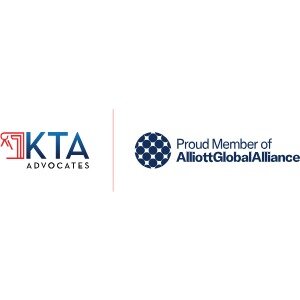Best Tax Lawyers in Uganda
Share your needs with us, get contacted by law firms.
Free. Takes 2 min.
Or refine your search by selecting a city:
List of the best lawyers in Uganda
About Tax Law in Uganda
Tax law in Uganda is governed by several legislative acts designed to regulate taxation and ensure compliance among individuals and businesses. The Uganda Revenue Authority (URA) is the primary body responsible for the assessment, collection, and accounting for central government tax revenue. Key taxes include income tax, value-added tax (VAT), excise duty, stamp duty, and import duty. Uganda’s tax system aims to enhance revenue mobilization while supporting economic growth and development.
Why You May Need a Lawyer
There are various situations where seeking the help of a tax lawyer could be invaluable:
- Tax Disputes: If you're facing a dispute with the URA regarding assessments or tax liabilities.
- Tax Planning: For businesses and individuals seeking to optimize their tax obligations through legitimate means.
- Compliance Issues: Ensuring that your business complies with Ugandan tax laws to avoid penalties.
- Audit Representation: Assistance during audits conducted by the URA.
- Business Transactions: Legal advice on the tax implications of mergers, acquisitions, and other corporate transactions.
Local Laws Overview
Understanding key aspects of Uganda’s tax laws is essential for compliance:
- Income Tax Act: Governs the taxation of both individual and corporate incomes in Uganda.
- Value Added Tax Act: Imposes a VAT on taxable supplies made by taxable persons in Uganda.
- Excise Duty Act: Imposes duties on specific goods produced locally or imported into Uganda.
- Tax Procedures Code Act: Consolidates the rules dealing with matters of procedure, compliance, and enforcement.
- Stamp Duty Act: Involves the levy on documents that transfer rights of property or entail contractual rights.
Frequently Asked Questions
What types of taxes are applicable in Uganda?
The main types of taxes in Uganda include income tax, VAT, excise duty, import duty, stamp duty, and withholding tax.
Who is responsible for tax administration in Uganda?
The Uganda Revenue Authority (URA) is responsible for tax administration and enforcement of tax laws in Uganda.
What is the current VAT rate in Uganda?
The standard VAT rate in Uganda is 18% on most goods and services.
Do expatriates pay income tax in Uganda?
Yes, expatriates working in Uganda are subject to income tax if they derive income from sources within Uganda.
How often should businesses file tax returns?
Businesses are generally required to file monthly returns for VAT, and annual returns for income tax, along with provisional tax returns.
What happens if I don't pay my taxes on time?
Failure to pay taxes on time may result in penalties, interest charges, and possible legal action by the URA.
Do non-residents pay tax on Ugandan income?
Non-residents are taxed only on income sourced within Uganda, usually at a withholding tax rate stipulated for non-residents.
What is withholding tax in Uganda?
Withholding tax is a form of income tax deducted at source on payments for specific services and supplies.
Can I appeal a tax assessment issued by the URA?
Yes, you can appeal a tax assessment through the established procedures, starting with a formal objection to the URA and, if necessary, proceedings in the Tax Appeals Tribunal.
How can I benefit from tax incentives in Uganda?
Uganda offers various tax incentives, especially in sectors like agriculture, manufacturing, and tourism. Understanding eligibility and application procedures is critical to benefiting from these incentives.
Additional Resources
If you need more information or assistance, consider the following resources and organizations:
- Uganda Revenue Authority (URA): Provides comprehensive guidance, forms, and tax information.
- Ministry of Finance, Planning and Economic Development: Oversees macroeconomic policies and taxation policy.
- Tax Appeals Tribunal: Handles disputes between taxpayers and the URA.
- Professional Tax Consultants and Accountants: Engage reputable firms or professionals for expert advice.
Next Steps
If you need legal assistance in tax matters, start by consulting with a knowledgeable tax lawyer or professional. Consider the following steps:
- Research: Engage in preliminary research to understand your tax issue and potential legal strategies.
- Consultation: Schedule a consultation with a licensed tax attorney or accountant who specializes in Uganda's tax laws.
- Documentation: Gather all related documentation and details pertinent to your tax issue.
- Legal Strategy: Develop a clear legal strategy with the help of your advisor to address your specific needs.
- Action: Take informed action, whether it's filing an appeal, negotiating with the URA, or implementing tax optimization strategies.
Lawzana helps you find the best lawyers and law firms in Uganda through a curated and pre-screened list of qualified legal professionals. Our platform offers rankings and detailed profiles of attorneys and law firms, allowing you to compare based on practice areas, including Tax, experience, and client feedback.
Each profile includes a description of the firm's areas of practice, client reviews, team members and partners, year of establishment, spoken languages, office locations, contact information, social media presence, and any published articles or resources. Most firms on our platform speak English and are experienced in both local and international legal matters.
Get a quote from top-rated law firms in Uganda — quickly, securely, and without unnecessary hassle.
Disclaimer:
The information provided on this page is for general informational purposes only and does not constitute legal advice. While we strive to ensure the accuracy and relevance of the content, legal information may change over time, and interpretations of the law can vary. You should always consult with a qualified legal professional for advice specific to your situation.
We disclaim all liability for actions taken or not taken based on the content of this page. If you believe any information is incorrect or outdated, please contact us, and we will review and update it where appropriate.
Browse tax law firms by city in Uganda
Refine your search by selecting a city.
















